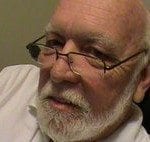Pfc Bradley Manning, a Crescent, OK native, was sentenced today to 35 years in prison for leaking more than 700,000 government files to WikiLeaks. Many of the documents he provided detailed incidents of torture and the U.S. policy regarding torture in Iraq as well as death counts well above those made public by the Army. Manning has been vilified as a traitor and exalted as a hero.
Observer contributor Richard L. Fricker discussed the punishment, the case and its implications today with former Tulsa journalist Denver Nicks, author of Private: Bradley Manning, WikiLeaks and the Biggest Exposure of Official Secretes in American History, a landmark in investigative journalism:
Fricker: By virtue of your book it would be safe to assume that during your research you came to know Bradley Manning was well as anyone, and better than most of the millions who have followed his case. In the course of your research, interviews and writing did you find any thing to indicate Private Manning was un-American, an enemy sympathizer or willfully disloyal to his country?
Nicks: There is really no question that Bradley Manning was and still considers himself to be a patriotic American. He has never said anything to indicate otherwise [except for, supposedly, once saying that the flag means nothing to him, which sounds more like a 21-year-old academic musing symbols and nationalism]. He isn’t even anti-war. Manning was proud to be a soldier and to serve his country and for better or for worse he clearly felt he was serving his country by leaking state secrets.
Were you surprised at his sentence?
His 35-year sentence is about what I expected – maybe just a bit more. I wouldn’t be surprised to see his sentence commuted a decade or two from now.
In your opinion was Manning arrested, confined in solitary and tried because of the information he released or more because the intelligence community and the Army in particular were in a snit because he had hung some laundry out to dry in public.
Manning clearly and admittedly broke a number of laws and he was tried and ultimately sentenced for those infractions. The more serious charges, aiding the enemy and the potential 90-year sentence had everything to do with prosecutorial overreach.
I was visiting with an Iraq/Afghanistan vet friend of mine last week who commented, “Manning got a lot of people killed.” I asked where and how, but he didn’t seem to know any particulars, which is a common conversation. Is there any claim by the Army or any evidence the Manning disclosures did in fact get anyone killed?
No, no evidence to support that claim has ever surfaced. But as I wrote in Private, proving that something like that had gotten someone killed is a tall errand, and proving that it never happened is, in a familiar logical conundrum, impossible.
Admittedly I have not read all the Manning disclosures, but a lot of what I read was only slightly above embassy gossip. What were the real secrets Manning had access to and did in fact disclose?
A lot of it was that kind of idle chatter and low-level, mundane field reports. Some major revelations were woven throughout though, like 15k more civilian deaths than had ever been accounted for in Iraq, and the fact that the Pentagon does to civilian body counts, which it had long denied. Frago 242 is one of the most troubling – this is the document ordering coalition forces in Iraq to turn a blind eye when Iraqis were torturing and/or executing detainees.
As you stated Manning did break some laws, but where is the line between what Manning did and the generals and colonels that retire every day and then go to work for think tanks and defense contractors? I mean these folks aren’t being hired for their good looks and charm; they have or had information, much like Manning did. The difference, it seems they are putting some lipstick on it and selling what they know or can find out through their former network. I’d like your thoughts on that.
If those generals and colonels reveal classified information in the course of that work it’s supposed to be cleared first with, I believe, the Information Security Oversight Office. I think what you’re describing is someone using expertise and contacts gained in the employ of the Army, which I don’t really see as the same thing as leaking en masse hundreds of thousands of raw documents. Another big different would be that said officers are profiting off the interaction, whereas Manning, obviously, is not.
Based on your experience how does the Army and the intelligence services in general view their jobs, themselves and more importantly the American people, are we either patriots or traitors, with the potential to be either at any given moment?
In my experience members of the armed forces in general and the intelligence sectors in particular are smart, analytical people, not typically prone to making black/white assessments like that. There does, however, seem to be a “you can’t handle the truth” mentality endemic to senior officials over the course of the last decade. James Clapper. Cofer Black. President Obama. There’s a certain arrogance, an idea that things are so dangerous now that we can’t afford to maintain fealty to our principles, to go through legal channels, or to be forthright with the American people. I’m not convinced – at all – that life on earth is any more dangerous today that it was in the decades and centuries past when we put in place democratic protections against the abuse of power in government.
And how has private contracting changed the landscape of intelligence gathering and secret keeping.
It has, frankly, made the entire system of classification and security clearances a joke. We have something like north of 1.4 million people in America with a Top Secret security clearance. That is a hell of a lot of people with access to information, the disclosure of which, could “reasonably be expected to do serious harm to the national security.” I’m not buying it. The whole system is broken, and security clearances are valued because of what they earn the holder on the free market. In short, our system of state secrecy – that is, the system in place whereby we allow our government to lie to us in order to provide for our protection – has been reduced to a resume builder for many people in private contracting. We give more people more access to more secrets than ever before. Manning and Snowden [a private contractor, incidentally] were inevitable. So is whoever comes next.
Do you think the Manning case is closed or is their more still waiting out there? Additionally, did the Manning case put a chill on disclosures by others or perhaps embolden other Manning just waiting for the proper time and venue?
Edward Snowden has said that he was directly inspired by Bradley Manning, so we have already seen one person emboldened.
Lastly, what have you learned and what conclusions have you drawn from case of Bradley Manning?
For me, the biggest issue in the Manning case is the one people seem least interested in talking about – that is, the context of the leaks. In the age of the Internet, we started classifying more information than ever while giving more people than ever access to classified information. Our secrecy system is totally dysfunctional, rife with abuse, and has been used time and again to cover up abuse. It’s bloated, dysfunctional, and badly broken. We need secrecy, but we need it to be lean, efficient, and in sleek, working condition. We’re in quite a fix and it’s my opinion that the last several years are just the tip of the iceberg.
 Denver Nicks is a writer for Time based in Washington, DC, and the author of Private: Bradley Manning, WikiLeaks and the Biggest Exposure of Official Secrets in American History. His work has appeared in Newsweek, The Daily Beast, National Geographic Traveler, The Nation, The Huffington Post and other publications. His next book is top secret but he stays busy in search of decent BBQ joint in the District of Columbia.
Denver Nicks is a writer for Time based in Washington, DC, and the author of Private: Bradley Manning, WikiLeaks and the Biggest Exposure of Official Secrets in American History. His work has appeared in Newsweek, The Daily Beast, National Geographic Traveler, The Nation, The Huffington Post and other publications. His next book is top secret but he stays busy in search of decent BBQ joint in the District of Columbia.
 Richard L. Fricker lives in Tulsa, OK and is a regular contributor to The Oklahoma Observer. His latest book, The Last Day of the War, is available at https://www.createspace.com/3804081 or at www.richardfricker.com.
Richard L. Fricker lives in Tulsa, OK and is a regular contributor to The Oklahoma Observer. His latest book, The Last Day of the War, is available at https://www.createspace.com/3804081 or at www.richardfricker.com.
Caricature of Bradley Manning by DonkeyHotey http://www.flickr.com/photos/donkeyhotey/
The Oklahoma Center for Conscience – through its executive director, Rena Guay – issued the following statement regarding Manning’s sentence:
The Oklahoma Center for Conscience, due to its mission of opposing the injustices and evil of war, has stood against the prosecution and punishment of Bradley Manning since his arrest in 2010. We joined the Bradley Manning Support Network and have worked alongside activists around the world to educate the public about the war crimes and government misdeeds that the Wikileaks documents helped expose. We have organized numerous events in Oklahoma to express this support, expand awareness and demand that the real criminals — those who perpetrated war crimes in the name of the United States — themselves be brought to justice. We believe that blowing the whistle on war crimes is not a crime, and neither is publishing information that the American public has a right to know.
Today we are angered and heartbroken at the sentence of 35 years meted out to Bradley Manning, a sentence far greater than any ever given to service members who killed innocent civilians in Iraq or Afghanistan and disproportionate to punishment of Americans involved in torture. Or, for that matter, who lied the country into an unnecessary and illegal war. By the end of 2013, Manning will have been imprisoned longer than was William Calley, who led the slaughter of 500 innocents in My Lai [and that was mostly house arrest].
We have taken on this work because of our heartfelt belief in the courage and heroic motives of Bradley Manning, and we were further spurred into action by being in Oklahoma, where Manning was born and raised. Because of our location, we have been contacted by media from around the world, while most Oklahoma media outlets ignored, trivialized or distorted what is doubtless an historic case with serious domestic and global ramifications, while also failing to recognize local support for Manning.
Tonight we will gather for a vigil in Crescent, Oklahoma, Bradley Manning’s hometown. We will mourn what is, so far, a lost opportunity to re-orient our priorities as a nation to one that truly values truth and democracy, rather than only giving them lip service. We deplore the actions and words of our President and Congress, who have failed to fulfill their oath of office, and who have allowed this nation to succumb to fear, suspicion and the endless greed of war profiteers. We reject that national zeitgeist as necessary for our security, and with today’s news, we vow to continue to resist immoral policies and actions, regardless of who is administrating and advocating them.









When you join the military, you take an oath that includes protecting your nation’s secrets. And if you apply for and receive security clearances, your oath is still in force. If you disagree with this process, then you should not join a military service. Whether or not I agree with the current flap over government secrets is secondary to my strong belief that American military personnel serving in war zones, e.g., Afghanistan, should not be imperiled by the immature, irresponsible actions of some pip squeak who thinks he is saving the world from destruction. A traitor? Perhaps I wouldn’t go that far (unless of course lives were lost as a direct result of his stupid actions), but I certainly would strip him of every ribbon, rank and association with the military. He is a disgrace to those who serve honorably. Too many men and women have died and been seriously injured doing their job even when many of them probably didn’t agree with it either. The last thing those still getting shot at need is to have this twerp thinking he’s some hero…far from it. He got what he deserved and should be damn glad they didn’t shoot him.